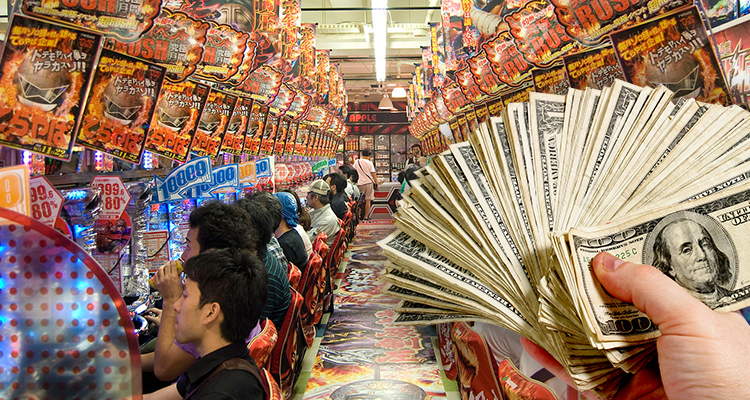In the wake of Japan’s passage late last year of enabling legislation that could see up to two Las Vegas-style integrated gambling resorts licensed by the beginning of 2018, members of the government are reportedly considering implementing anti-addiction measures on existing gambling establishments such as pachinko parlors and race tracks.
According to a report from the Bloomberg news service, the ideas being considered as part of the wider process of drafting concrete casino legislation include allowing an individual’s access to pachinko to be restricted upon the request of a relative alongside banning the use of credit cards at race tracks.
Bloomberg reported that the exclusion proposal mirrors a provision already offered in Singapore casinos while the government is worried that the use of credit card machines at racetracks could lead to a proliferation in instant cash loans.
Legislators are reportedly additionally considering whether to oblige pachinko operators in Japan to take measures to combat addiction and could moreover establish an independent body tasked with overseeing progress.
“Companies in any sector prefer to regulate themselves; being bound by legislation is bad for business,” Kazuaki Sasaki, an international tourism associate professor at Toyo University, told Bloomberg. “Although the increase in costs will hurt the industry in the short term, they’re necessary to ensure its long-term survival.”
Sasaki told the news service that pachinko has traditionally been classified as an amusement similar to fairground attractions as winning players are offered prizes instead of cash. However, he stated that these prizes can subsequently be exchanged for hard currency at other venues often located only a few feet from the actual machines.
Bloomberg reported that Japanese punters spent $209 billion on the pinball-like pachinko machines in 2015, which represented about 4% of the nation’s entire gross domestic product, while current regulations additionally allow players to wager on horse, boat, bicycle and motorcycle races.
Despite this popularity, the news service reported that relatively little has been done to combat the problems associated with gambling, which is something Prime Minister Shinzo Abe is keen to remedy following the passage of casino enabling legislation in late-December. Members of his Liberal Democratic Party have previously joined with legislators from the coalition partner Komeito political party to ask the government to conduct research into gambling dependency and the need for stronger regulations while the latest pachinko and credit card measures could reportedly be sent to the full Diet for a vote by the end of the week.



